Supreme Court says work on new coastal bridge can resume

The Alabama Supreme Court ruled Friday that the state can continue work on a new bridge that will give motorists an alternate route to state beaches. Justices reversed an injunction issued by a Montgomery judge that had halted work on the bridge across the Intracoastal Waterway. The injunction was issued after the operators of an existing toll bridge sued the state. Justices said the trial court did not have subject-matter jurisdiction over the bad-faith claim that served as the basis of the preliminary injunction. The Alabama Department of Transportation said construction will resume in the coming weeks. “This is an important victory for Alabama’s coastal residents and millions of visitors to our state. The need for a new, free bridge is obvious,” Alabama Department of Transportation spokesman Tony Harris said. He said the bridge will help relieve traffic congestion at the coast and provide an additional evacuation route during hurricane season. Baldwin County Bridge Company, which operates an existing toll bridge to get to Gulf beaches, filed a lawsuit seeking to block construction of the new bridge that would be located just over 1 mile (1.6 kilometers) away from its existing toll bridge. The company argued that Transportation Director John Cooper acted in bad faith during negotiations to lower toll amounts and other operational changes, and then pursued the new bridge project to financially damage the company. “Today’s decision sends an unfortunate message to businesses across this nation – come to Alabama on notice that anything an unelected government official chooses to do to you, he can do, and you are powerless to stop him even if he is acting in bad faith,” Neal Belitsky, president of Baldwin County Bridge Company, told al.com. Montgomery Circuit Judge Jimmy Pool in May sided with the toll bridge company in issuing a preliminary injunction ordering a halt to construction of the project. Pool said trial evidence showed that Cooper pushed for the new bridge without traffic studies and had only one discussion about it with the governor. Republished with the permission of The Associated Press.
Alabama transportation director John Cooper arrested on misdemeanor harassment charge
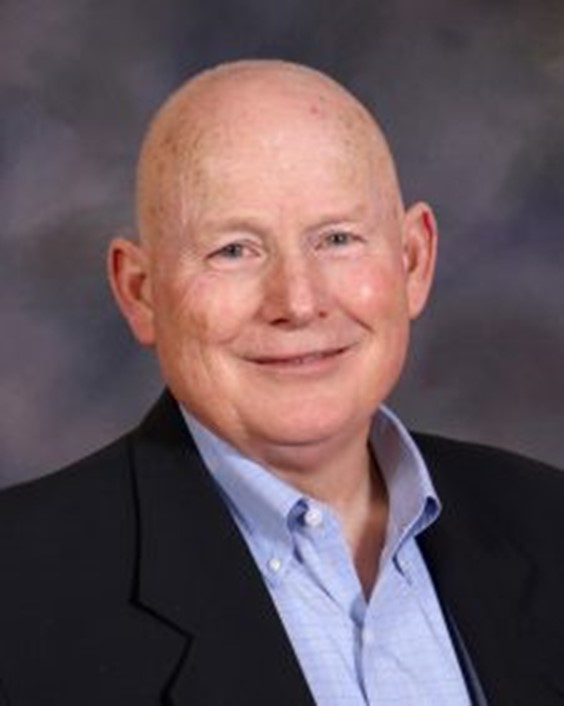
Alabama Transportation Director John Cooper was arrested Monday on a misdemeanor harassment charge, jail records show. Cooper, 75, was arrested shortly before noon and booked into the Marshall County Jail on a charge of harassment. The longtime transportation director was released on $500 bond about 40 minutes later. Chief Deputy Willie Orr, of the Marshall County Sheriff’s Department, said the arrest stemmed from a private citizen making a complaint against another. He declined to elaborate on the nature of the dispute. He said Cooper came to the jail around midday and turned himself in. Cooper has been the director of the Alabama Department of Transportation since 2011. He is a member of Alabama Gov. Kay Ivey’s cabinet. Ivey spokeswoman Gina Maiola said the governor’s office was gathering information on the arrest and did not have any immediate comment. Republished with the permission of The Associated Press.
Court declines to lift injunction blocking coastal bridge project

A divided Alabama Supreme Court on Friday declined to lift a preliminary injunction blocking construction of a new coastal bridge. Justices, in a 5-3 decision, declined the emergency request from the Alabama Department of Transportation to lift the injunction halting construction of a new bridge across the Intracoastal Waterway. The decision will leave the injunction in place as the legal fight goes forward over the project. “While we are disappointed the Court has left the halt to construction in place for now, we are optimistic that the final ruling on our appeal will be in favor of building the new, free bridge,” Transportation Department spokesman Tony Harris said in a statement. Montgomery Circuit Judge Jimmy Pool, siding with toll bridge operators that challenged the construction, last month issued a preliminary injunction ordering a halt to the construction of the project. Baldwin County Bridge Company, which operates the existing toll bridge to Gulf beaches, filed a lawsuit seeking to block construction of the new bridge that would be located just over 1 mile away from its existing toll bridge. The company argued that Transportation Director John Cooper acted in bad faith during negotiations on toll amounts and other operational changes, then pursued the new bridge project to financially damage the company. “Director Cooper’s outrageous conduct in embarking on spending more than $120 million of State funds, on a bridge that ALDOT does not need, for the purpose of putting a private company out of business shocks the conscience of the Court,” Pool wrote. Cooper had testified that the new bridge was needed to alleviate traffic congestion and give motorists a new route to state beaches. Republished with the permission of The Associated Press.
Judge halts bridge project, says Alabama transportation director had ‘personal vendetta’

Driven by a “personal vendetta” against a toll bridge company, Alabama’s transportation director planned to build an unnecessary bridge across the Intracoastal Waterway at a cost of more than $100 million to the state, according to a judge who ordered construction to stop Wednesday. Montgomery Circuit Judge Jimmy Pool, siding with the toll bridge company, issued a preliminary injunction ordering a halt to construction of the project. Pool said trial evidence showed that Transportation Director John Cooper pushed for the new bridge without traffic studies and had only one discussion about it with the governor, “Director Cooper’s outrageous conduct in embarking on spending more than $120 million of State funds, on a bridge that ALDOT does not need, for the purpose of putting a private company out of business shocks the conscience of the Court,” Pool wrote. Baldwin County Bridge Company, which operates the existing toll bridge to get to Gulf beaches, filed a lawsuit seeking to block construction of the new bridge that would be located just over 1 mile away from its existing toll bridge. The company argued that Cooper acted in bad faith during negotiations to lower toll amounts and other operational changes, then pursued the new bridge project to financially damage the company. Transportation Department spokesperson Tony Harris said the state will appeal to the Alabama Supreme Court. “We are disappointed in the decision because it’s clear that a new, free bridge is needed to help alleviate traffic congestion and offer a new evacuation option to residents and visitors to Alabama’s Gulf Coast,” Harris wrote in an emailed statement. “Years of negotiations with the private toll bridge company failed to deliver a solution. The public benefit of a new, free bridge should outweigh the interests of the private toll bridge company.” During trial testimony, Cooper defended the decision to proceed with the project last year. Cooper said an alternative route is needed to alleviate traffic congestion on the highway leading to state beaches. He said the decision was made based on traffic data and support from local and state officials. The Transportation Department last year signed a $52 million contract for bridge construction. An attorney for the toll bridge company said the expense of related roadways will bring the total cost to $120 million. “People in positions of authority representing the government cannot do or say anything they want. When government officials attempt to target businesses through bad faith, the courts of Alabama will hold them accountable,” said Joe Espy, a lawyer for the toll bridge company. Republished with the permission of The Associated Press.
Joe Biden nominates 4 for Tennessee Valley Authority board
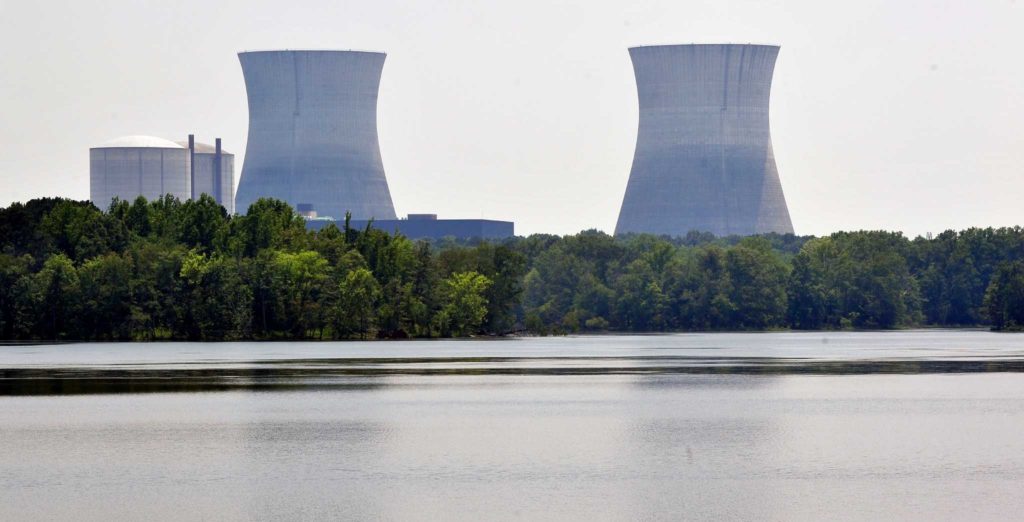
President Joe Biden has nominated four people for the board of a federal utility. The White House announced Tuesday that Biden has picked Beth Geer, Robert Klein, Kimberly Lewis, and Michelle Moore for five-year terms on the Tennessee Valley Authority’s nine-member board. The positions require Senate confirmation. Geer is the chief of staff to former Vice President Al Gore. She serves on Nashville Mayor John Cooper’s Sustainability Advisory Committee. Klein is a retired line foreman for the Electric Power Board of Chattanooga. He also filled roles with the International Brotherhood of Electrical Workers. Lewis is the CEO of a Huntsville, Alabama, engineering, and logistics company. She became the first Black female elected board chair of the Huntsville/Madison Chamber of Commerce and the first minority owner of Alabama’s WTZT-TV TV station. Moore, who grew up in LaGrange, Georgia, and lives in Richmond, Virginia, heads a clean energy nonprofit after leading former President Barack Obama’s sustainability team. The TVA board has two vacancies and two board members whose terms expire in May — chairman John Ryder, former Republican National Committee general counsel; and former coal company executive Kenneth Allen. The Tennessee Valley Authority provides electricity for 10 million people in Tennessee and parts of six surrounding states. Republished with the permission of the Associated Press.
Will toll opposition continue to make a difference in mayoral elections Fairhope and beyond?
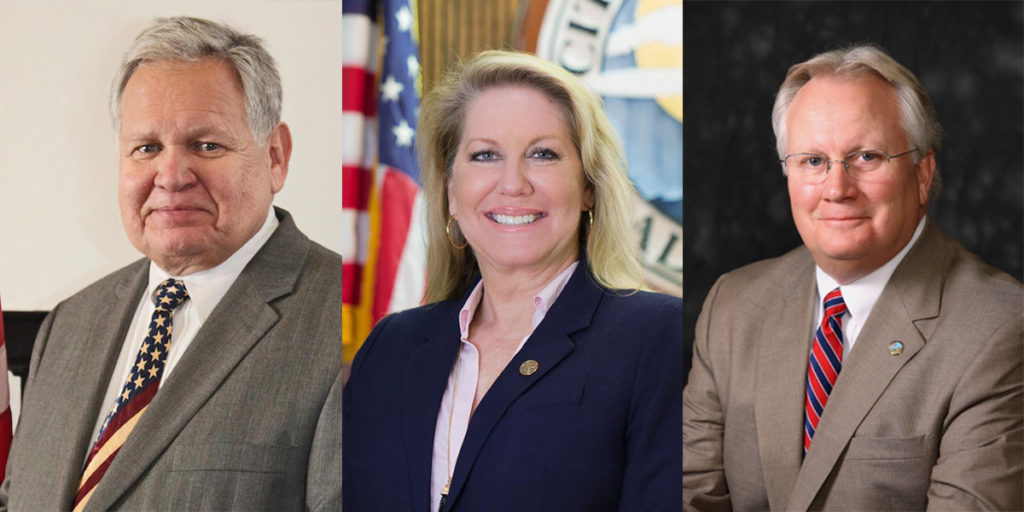
In the summer of 2019, the opposition to the toll bridge on I-10 in Alabama reached a fever pitch. The project included a new 2.5-mile-long, six-lane cable-stay bridge and involved a complete replacement of the existing I-10 Bayway. The project would cost a considerable amount of money, with the price tag rising exponentially as the plans were finalized. John Cooper, the director of the Alabama Department of Transportation and Governor Kay Ivey insisted the only way to fund the project would be to toll drivers. While they expected opposition, those in Montgomery thought that they’d steamroll the opposition. State Auditor Jim Zeigler explained what opponents were up against, telling AL.Com on the night project died, “When we first started, several people told me that ‘you’re wasting your time. It’s a done deal, and there isn’t a thing you can do. It’s a done deal. But now, it’s a dead deal.” It’s easy to look back at the fight, especially the end of the battle when politicians started tripping over themselves to rush to the side of the overwhelming majority of residents opposed to the plan and see its death coming by 1,000 cuts, but it’s essential when we look to the future that we look at the history and what happened. There’s no better place to look than Zeigler’s book, Blocking the 1-10 Toll Scheme: A Successful Citizen Movement. In the book, he describes in detail the timeline from start to finish of the grassroots efforts to stop the bridge. In an interview with Alabama Today, he noted, “The book doesn’t favor any one person or seek to endorse anyone. It simply gives a timeline of what progressed.” A free copy of the book is available at: http://tinyurl.com/BlockingTheToll In it, he describes the Fairhope City meeting, which was planned to be at the Fairhope Civic Center, in the large city council meeting room. There were 33 people who opposed the toll scheduled to testify. Only two people were slated to testify in favor of the toll. Neither of those people ended up speaking. The meeting lasted four hours. In the end, the ESMPO members voted 8 to 1 in favor of the motion to remove the toll project from the TIP. Zeigler stated in his book that the community effort to kill the toll was partly due to the skilled organization of several people, including Karin Wilson. Fairhope’s mayor, Karin Wilson, played a vital role in stopping the toll plan. Mayor Wilson was the first member of the Eastern Shore Metropolitan Planning Organization to oppose the toll plan. She made the argument that the state should have invested the BP settlement money to fund the project instead of using the money as part of their operating budget. Wilson took to her Facebook page to express her opposition. “I’m 100% against a toll to build this bridge whatever the fee.” Wilson continued, “The critical need for a new bridge has been discussed for over a decade. To react as though building it now is an overnight emergency is absurd. It’s the perfect example of government getting away with zero accountability. A household or business cannot operate with the idea that if we cannot balance our budget we can force someone else to pay for it. We must budget within our means or fail and suffer the consequences. It’s a pretty good incentive having to be accountable.”Zeigler himself rallied opponents on his own Facebook page, gathering 55,000 people to fight the project. Other officials on the ESMPO who voted against the toll were Daphne mayor Dane Haygood, Spanish Fort mayor Mike McMillon, Loxley mayor Richard Teal, Fairhope city council president Jack Burrell, Daphne city councilman Ron Scott, Baldwin county commissioner Billie Jo Underwood, and Baldwin county commissioner Joe Davis.Zeigler’s citizen group named Block the Tolls. Support Accountability is still active with 52,000 members. Will the toll issue and toll fighters make a difference in the upcoming municipal elections on August 25? Because the toll proposal could resurface at any time, it is likely that citizens will remain engaged. Since the toll plan was blocked on August 28 of last year, the group succeeded in defeating Amendment One on the March 3rd ballot. It would have taken away the right to vote for or against members of the State School Board and make them all appointed by the governor. The proposal was demolished, 75% no to 25% yes. It was another victory for the ‘No Tolls’ group. Mobile County Commissioner Jerry Carl, who drafted the resolution to remove the toll from the Transportation Improvement Plan won the Republican nomination for Congress on July 14 by a vote of 52% to 48%. Will the 52,000 toll-fighting activists make a difference in the August 25 municipal elections? Will they remember those officials who helped block the toll? Over 2,000 of the toll fighters live in the City of Fairhope, where there is a contested Mayor’s race. Fairhope is considered a bellwether of the continuing influence of Zeigler’s citizen group.
Rauf Bolden: Proposed bridge project will fail in Orange Beach
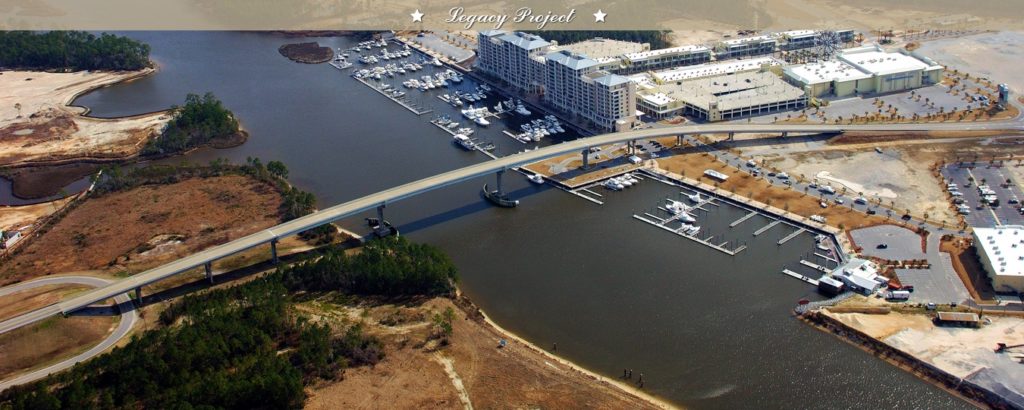
Last month, Alabama Department of Transportation (ALDOT) Director John Cooper went on the record with John Sharp of al.com. Cooper said, “People just hesitate to pay that toll,” justifying his decision to approve spending $60-65 million on a taxpayer funded Flyover Bridge that will be toll free (End The #Bridge2Nowhere). Construction is slated to start as soon as the permit is approved by the Army Corps of Engineers. National Marine Fisheries Service, a division of NOAA (National Oceanic and Atmospheric Administration) wrote a letter dated May 10, 2018 to the Corps of Engineers, authored by Virginia Fay, Southeast Assistant Regional Administrator with the Habitat Conservation Division, “Alternative alignments to avoid wetlands and utilize existing roads should be further explored.” According to AL.com, Fay wrote, “There are two bridge crossings within three miles of the project site and expansion of these existing structures should be explored.” NOAA has legitimate wetlands and fisheries concerns for blocking bridge construction in Orange Beach. The idea of the Flyover Bridge germinated and grew from complaints about traffic congestion on Canal Road during the tourist season. Basically ALDOT Director Cooper says the congestion is caused by traffic moving toward the Holmes Bridge on Hwy 59, avoiding the Foley Beach Express because of “toll avoidance.” Assuming Director Cooper’s instincts are correct, and “toll avoidance” is the problem, lets look for a solution. I suggest marketing toll passes to vacation rental agencies, combining the benefit of pre-paid tolls, bundled with renting from a premier company like Brett-Robinson. When a reservation is confirmed, the customers are emailed bridge passes for their vacation rental, or the passes are downloaded from the toll-bridge app onto their phones, or the passes are validated by license plate recognition when the customer’s vehicle passes through the toll booth. Either method increases bridge capacity, and customer satisfaction. Bundling has several key issues, primarily legal agreements between The Foley Beach Express (American Roads) and the vacation rental companies. Finding an innovative way to increase traffic across the Foley Beach Express Bridge, and minimize “toll avoidance” requires trust from both parties. Creating an alternative like bundling to minimize “toll avoidance” satisfies Director Cooper’s explanation, pushing more traffic to the Foley Beach Express while minimizing the need for a third bridge on the island, but there is still a lot of work to do before summer. Some residents like Joe Emerson do not support the State of Alabama spending $60-$65 million on a Flyover Bridge in Orange Beach, arguing the bridge is not needed. He holds the state should prioritize these funds for other projects where the need is fully documented. Director Cooper cites statistics, but his assertions are not tied to any formal traffic studies ALDOT has released to the public, supporting the concept of a third bridge. According to a report by John Mullen on the OBA Website, residents and elected officials in Orange Beach and Gulf Shores are in favor of a Flyover Bridge, but no Referendum is planned, verifying constituent opinions. This rendering is looking south, going over the bridge, exiting onto Canal Road. Cheering for the bridge, and getting approval from the Corps of Engineers are two different things. The Corps must listen to multiple sides of the story, weighing special interests’ voices, politicians’ desires, environmental concerns, traffic studies, and residents’ blowback. Once ALDOT Director Cooper’s reasoning about “toll avoidance” is fully explained, bundling the toll pass with vacation rentals becomes a viable alternative to new construction. The Flyover Bridge project is presently on hold, waiting for the Corps of Engineers. It must be argued, spending $60-$65 million for a third bridge on an island that is eight miles long produces one of those neck-snapping moments of cognitive reality. A common sense solution like bundling toll passes with vacation rentals, eliminating “toll avoidance” makes sense, defeating the dark arts of bridge politics. Rauf Bolden is retired IT Director at the City of Orange Beach, working as an IT & Web Consultant on the Beach Road. He can be reached at: publisher@velvetillusion.com.
How ALDOT and John Cooper are exploiting the weaknesses of the open records law
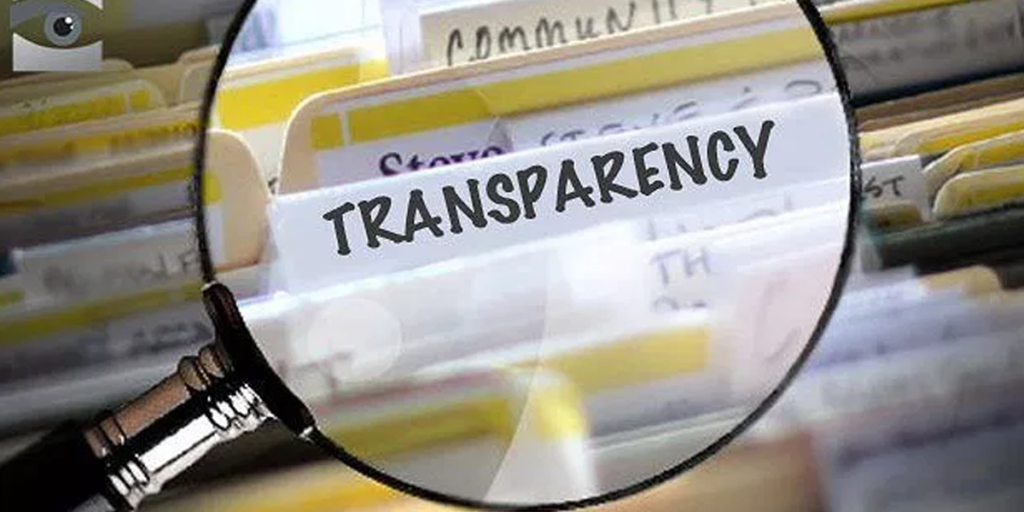
The Alabama Public Records Law is a series of laws designed to guarantee that the public has access to the records of government bodies at all levels across the state. But just because the law exists, doesn’t mean it’s easy to navigate, or even helpful for that matter. Alabama’s law, which can be found at statutes 36.12.40-41 and 41.13.1 – 41.13.44 of the Code of Alabama, has some glaring weaknesses that agencies have been exploiting, to hide facts from concerned Alabamians and lawmakers. Just this year we’ve seen the law fail both reporters and a state official. AL.com‘s Kyle Whitmire ran into problems when requesting information from Attorney General Steve Marshall‘s office. He was told his request was not public information: “State law provides that any such records as you request are not subject to disclosure,” Marshall’s public information officer, Mike Lewis wrote. “Section 12-21-3.1-3.1(b) of the Code of Alabama states that ‘Law enforcement investigative reports and related investigative material are not public records. Law enforcement investigative reports, records, field notes, witness statements, and other investigative writings or recordings are privileged communications protected from disclosure.’ Ala. Code SS 12-21-3.1(b) (2012).” Meanwhile State Auditor Jim Zeigler has run into this own issues when requesting public information from the Alabama Department of Transportation (ALDOT). In April, Zeigler sent a first letter to ALDOT Transportation Director John Cooper and ALDOT Chief Counsel William Patty requesting further information about an $87 million state-funded bridge projectin Baldwin County — which would be a second bridge to Orange Beach. Despite the fact he was elected to statewide office, his request went altogether ignored. In July, Zeigler doubled-down on his fact-finding efforts ands sent a second letter to Cooper and Patty requesting the information, giving them a deadline to respond of August 17. Yet, as of Sept. 6, Zeigler’s heard only one thing: crickets. Alabama Today has run it its own share of problems in dealing with ALDOT and information requests. We first reached out to Tony Harris, spokesman for ALDOT, on May 18 with our own questions about the bridge project. He called back that afternoon and promised a response the following week. Flash-forward to May 25 then again June 12, more empty promises of information that never came. Finally on Aug. 24, after previously asking Alabama Today to avoid submitting an official public records request, he tells us that is what we have to do if we want the information. That there are issues being held up in the courts (by the way, they’ve all been resolved) and he’s unable to answer otherwise. Which has left us scratching our heads — Alabama officials are clearly exploiting holes in the Public Records Law and giving Alabamians the run-around as they see fit. Defining public records The Code of Alabama takes the time to define what public records are: As used in this article, the term “public records” shall include all written, typed or printed books, papers, letters, documents and maps made or received in pursuance of law by the public officers of the state, counties, municipalities and other subdivisions of government in the transactions of public business and shall also include any record authorized to be made by any law of this state belonging or pertaining to any court of record or any other public record authorized by law or any paper, pleading, exhibit or other writing filed with, in or by any such court, office or officer. (Ala Code § 41.13.44) Despite a clear definition, the law fails to set specific parameters to make the law work for the good of the people. What the law’s lacking There is no language that states how long the state has to respond to a public records request. Fees are not stipulated by law. One department may charge one fee, while another may charge something entirely different. The Department of Corrections, for example, requires a flat $25 fee for them to begin to process a request. Meanwhile the Secretary of State’s office requires $1.00 per copied page, rather than a flat fee. Not all agencies have a clear employee in charge of requests, thus making tracking down the correct person difficult. There is no defined appeals process when a requestor does not get what they were asking for. This is the first in a series of stories about this issue. Check back frequently for more information.
Kicking Jim Zeigler out of statehouse backfiring? Be careful what you ask for insiders
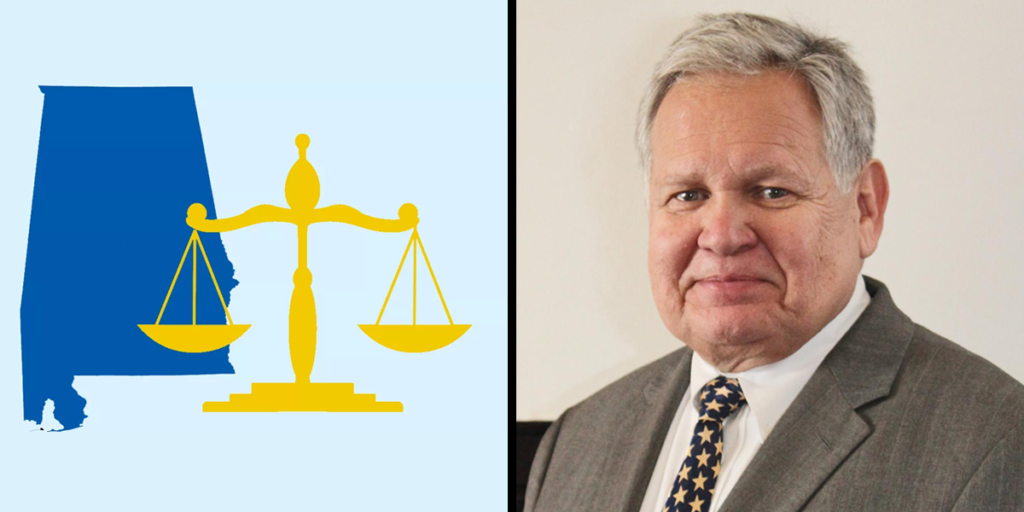
In a classic case of be careful what you ask for, State Auditor Jim Zeigler, who was told in April of 2018 that we was being unceremoniously kicked out the State House, “because they needed the space” all of a sudden, has found a new space for his office to reside. Ha! It’s in the same building as Ethics Commission. Just when lawmakers thought they were getting Zeigler out of their hair, one the state’s best loud and vocal advocates for taxpayers is now going to be ever so close to the people responsible for maintaining ethics. Allowing him to lodge complaints without so much as leaving the comfort of his building. Let’s be clear, if you think lawmakers wanted Zeigler out so they could use his space rather than to stop him from showing up at press conferences and watching what they were doing I’ve got a bridge to the beach in Az. to sell you. There are so many people in Montgomery who don’t like Jim’s in-your-face style, but as his recent showing in the GOP primary revealed he is doing just fine in the mind’s of the voters. Rather than aim to silence him we need to encourage more lawmakers to be like him. Zeigler is taking his job as a watchdog seriously. On a regular basis he’s questioning the actions and spending of those around him. Let’s not forget, it was Zeigler who pressed the issue of Governor Robert Bentley‘s ethics violations, he spoke out against a bizarre corrections contract for $300 million to a firm already tied up in ethics and bribery charges in Mississippi, he’s been outspoken in advocating for the prioritization of limited infrastructure and transportation money asking ALDOT and John Cooper questions they clearly don’t want to answer. As noted in his follow up yesterday, after THREE months of waiting as Cooper and his team dodge Alabama’s open records laws. It’s clear the efforts to move him were nothing but a stunt but those wanting to silence him are going to have to try harder.
Five things you need to know about Jim Zeigler
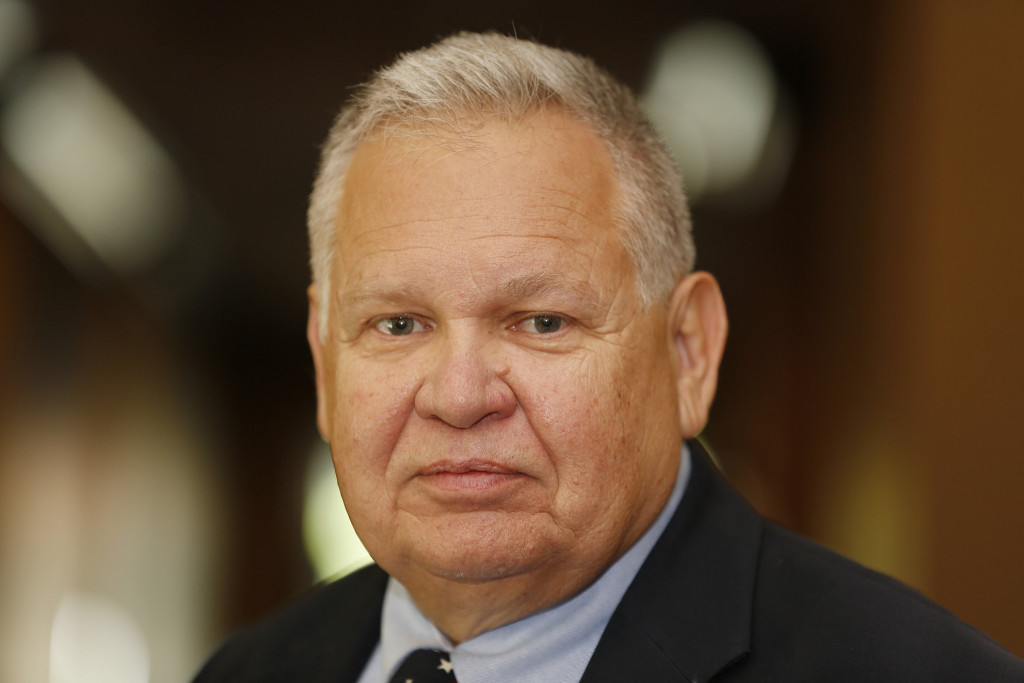
Incumbent State Auditor Jim Zeigler ran circles around his opponents in the June primary, taking home 55 percent of the vote. But now that the primaries are over, the real battle has begun. Zeigler one again faces Democratic nominee Miranda Joseph in the November 6 general election, creating a bit of a déjà vu for voters as the two ran against one another in 2014. With that in mind, here are the five things you need to know about Jim Zeigler: 1. He’s been Alabama’s state auditor since 2014, and has served in one other state office. Zeigler served on the Alabama Public Service commission in the 1970’s, and after running several unsuccessful campaigns for statewide offices in the early 2000’s, he was elected State Auditor in 2014. Since then he has been working hard: announcing a budget plan to save the state’s park system in 2015 and launching a volunteer-based program within his office to investigate claims of waste, fraud and abuse within Alabama state government, to his most recent quest to solve Alabama’s infrastructure problems; he’s become a public fixture nobody expected. 2. His background is in law and he practiced law for over 20 years. Originally from Sylacauga, Ala., Zeigler earned his JD from the Jones Law Institute at Faulkner University in Montgomery; obtaining his license in 1978. In 1993, he opened his own private practice, practicing as a mediator, arbitrator, and attorney until 2015, when he was elected State Auditor. Zeigler recently voluntarily relinquished his law license, after deciding not to run for Alabama Attorney General. 3. He’s fought hard against government waste while in office and continually seeks to keep Alabama lawmakers in check. The Alabama Department of Transportation’s (ALDOT) long contested “bridge to nowhere,” was a battle against wasteful spending Zeigler was willing to fight. Calling on ALDOT’s transportation director John Cooper to answer his questions about the need for an $87 million state-funded bridge project in Baldwin County — which would be a second bridge to Orange Beach, later saying the department needed to redirect funds from the bridge to the Mobile River Bridge and the I-10 Bayway Project. Zeigler has continued to “stir the pot” during his time in office, and seeks to continue what he sees as his job; keeping Alabama legislative officials in check. “I have a plan to turn the State Auditor’s office into a watchman against government mismanagement and waste,” Zeigler told Alabama Today. “It is starting to work.” 4. He was Student Government Association President at the University of Alabama. While in college, Zeigler served as President of the university’s Student Government Association (SGA) from 1970 to 1971. While there, he also served on the Athletic Committee with Coach Paul “Bear” Bryant. Note: Several members of the Alabama legislature have begun their political careers in universities student government associations. Governor Kay Ivey was a member of the SGA at Auburn University and Secretary of State John Merrill served as President of the University of Alabama’s SGA from 1986 to 1987. 5. He was one of the first legislative officials to file a complaint with the Alabama Ethics Commission regarding former governor Robert Bentley In March of 2016, before former governor Robert Bentley‘s impeachment process began, Zeigler filed a report with the Alabama Ethics Commission requesting they investigate Bentley’s affair with senior advisor Rebekah Caldwell Mason. A frequent critic of Bentley’s Zeigler released a statement saying; “the governor continues to disgrace the state of Alabama, and in my official capacity as state auditor, I am required to report these suspected violations.” Bentley was later impeached for his inappropriate affair with Mason, resigning from office in April of 2017.
Jim Zeigler to ALDOT: spend money on I-10 bridge, not duplicate intercoastal bridge
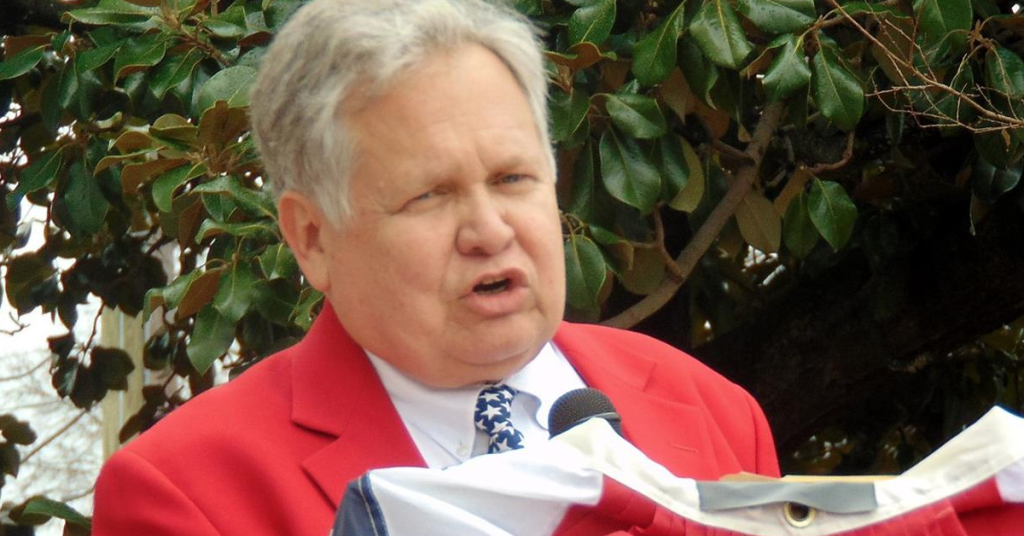
A $250 million grant for the Mobile River Bridge and the I-10 Bayway Project was denied by the federal government on Wednesday. Mobile and Baldwin county lawmakers applied for the grant last year under the Infra program, designed provide discretionary funds for projects in the U.S. that address critical issues facing the nation’s highways and bridges. Officials say the foundations for the bridge are already set in place, and the Alabama Department of Transportation will be meeting with “several ‘shortlisted’ teams to work on environmental documents, and furthering the design of the project,” according to WALA. Alabama State Auditor Jim Zeigler, says that given the denial of the federal grant; the state needs to redirect funds from the proposed duplicate Intercoastal Canal Bridge to the I-10 Bayway project. Ziegler released a statement Wednesday afternoon, saying, “the failure of the state to obtain the needed quarter-billion dollar ‘Infra’ grant means that discretionary funding must be redirected to the more mature projected for which there is a clearer need.” “Spending on the proposed duplicate Intercoastal Canal Bridge must be halted and redirected to the I-10 Bayway project,” he continued. According to Ziegler, “the I-10 project is designed to eliminate congestion in Mobile’s Wallace Tunnels and across the I-10 Bayway over Mobile Bay. The state of Alabama has been working on the project for years.” The controversial “duplicate Intercostal Canal bridge” Ziegler is referring to is the proposed bridge ALDOT is attempting to build between Orange Beach and Gulf Shores, Ala. Just over two months ago, Zeigler reached out to ALDOT trying to find answers about a proposed bridge, but neither John Cooper, transportation Director at ALDOT nor ALDOT have yet to respond to his request. Yesterday, Ziegler reached out to the Transportation Planning Organization to table a vote on including the bridge in their long term plan until he received answers. In their statement of response the TPO noted that, “ALDOT is heavily in support of the bridge.” The project received the necessary votes to be included in the plan.
Hey, John Cooper, ALDOT, Governor Kay Ivey: you guys have one job…
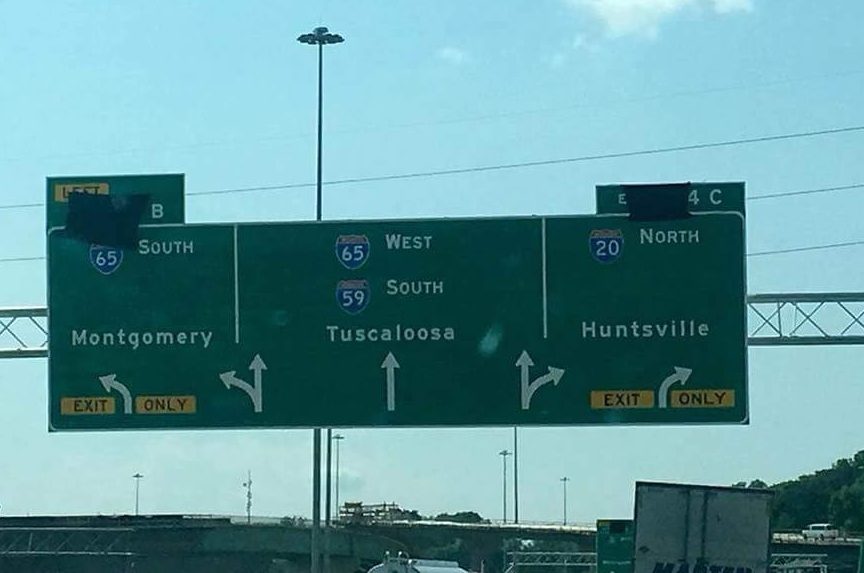
By now everyone’s seen the sign mix up at malfunction junction here in Birmingham. It would just be another government employee snafu (or more appropriately a bunch of snafus because someone designed that, someone made it, someone transported it and someone installed it all the while no one catching the error) that has gone viral on social media, but I think it’s bigger than that. It’s just another indication that Alabama’s Department of Transportation (ALDOT) keeps missing the mark. It’s clear: we have serious transportation problems in our state. From failing roads and bridges to general maintenance issues, there’s no shortage of projects for ALDOT to prioritize, so why do they continue to focus on the wrong projects? One look at the “Fix My Roads” project on Facebook — a page designed to allow citizens across the state to report roads and bridges that are in need of repair by taking photos/videos and posting them on this page along with a first person narrative — and you can see what Alabamians across the state would consider most important. But ALDOT rarely seems to prioritize what Alabama citizens do. Nevertheless the inevitable solution is to give ALDOT more money. Perhaps ALDOT actually needs more money. There is no denying the sad state of affairs when it comes to our infrastructure, but I have a novel idea for ALDOT spend the money you have already better. Prioritize. That’s what families and businesses around the state have to do on a daily basis. In a column I wrote for AL.Com that was published today, “Where ALDOT and two mayors get it wrong it’s up to Governor Ivey to get it right,” I make the case for John Cooper the Director of ALDOT and Governor Kay Ivey to take a look at what’s really necessary in our state and start there. We need our elected officials, at every level of government, in addition to those they appoint or hire, to work for the citizens they represent and prioritize of projects that will have the greatest benefit for everyone. The list of infrastructure projects that require funding from ALDOT and the states limited budget is never ending; and they aren’t concentrated to one area of the state. From I-595 in Huntsville, to I-10 in Mobile, the mess that is Birmingham highways our needs throughout the state are great. It seems like a novel idea, but instead Cooper and others want to spend taxpayer money with little to no evidence of need. If Ivey doesn’t step in, or Cooper doesn’t step up, how can they both look at taxpayers with a straight face and say that they’re true conservatives calling on tax increases? Why should either be given more money if they can’t spend what they have efficiently? Read the whole column to see an egregious example of a $87 million (before cost overruns of course) project that Cooper is pushing, a bridge that locals call the #BridgeToNoWhere. Here are the bills related to increasing gas taxes from last year as described by National Conference on State Legislatures. You can safely bet these bills will be back and in a non-election year your elected officials are more likely to pass them: AL S 86 2018 Alabama Road and Bridge Rehabilitation and Improvement Status: Failed – Adjourned – HOUSE Date of Last Action:* 2/6/2018 Author: Dial (R) Additional Authors: Beasley (D);Allen Ge (R);Holley (R);Whatley (R);Livingston (R) Topics: Bonding and debt, State taxes on gasoline and diesel, Transportation appropriations Summary: Provides for the establishment and incorporation of the Alabama Road and Bridge Rehabilitation and Improvement Authority, establishes the ATRIP-II Projects Special Fund, provides that the authority may issue bonds in an aggregate principal amount not exceeding a certain amount of which a certain amount thereof shall be issued to finance county and municipal road and bridge rehabilitation and improvement projects and the balance thereof issued to finance state road and bridge. History: Click for History AL S 89 2018 Gasoline and Diesel Fuel Taxation Status: Failed – Adjourned – SENATE Date of Last Action:* 1/9/2018 Author: Orr (R) Topics: State taxes on gasoline and diesel Summary: Relates to gasoline and diesel fuel taxation, authorizes a county commission to call for a referendum on the levy of an excise tax on gasoline and diesel fuel not to exceed a certain amount per gallon for specific road and bridge projects identified by the county prior to the referendum, provides that the excise tax could only be in effect for a period not to exceed a certain time period, provides for subsequent local referendums asking that new levies be authorized. History: Click for History AL H 360 2018 Gasoline and Diesel Fuel Taxation Status: Failed – Adjourned – House Transportation, Utilities and Infrastructure Committee Date of Last Action:* 2/1/2018 Author: Mooney (R) Topics: State taxes on gasoline and diesel, Transportation appropriations Summary: Relates to gasoline and diesel fuel taxation, authorizes a county commission to call for a referendum on the levy of an excise tax on gasoline and diesel fuel not to exceed five cents ($.05) per gallon for specific road and bridge projects identified by the county prior to the referendum, provides that the excise tax could only be in effect for a period not to exceed five years, provides for subsequent local referendums asking that new levies be authorized. History: Click for History AL S 377 2018 Colbert County Status: Vetoed – Pocket Vetoed by Governor Date of Last Action:* 04/08/2018 – Vetoed Author: Stutts (R) Topics: Local transportation funding, State taxes on gasoline and diesel Summary: Relates to Colbert County, authorizes the Colbert County Commission to levy a road and bridge construction excise tax on gasoline and other motor fuels, provides for the distribution of the proceeds to the county road and bridge fund to be used by the county and municipalities in the county for road and bridge construction in the county. History: Click for History


